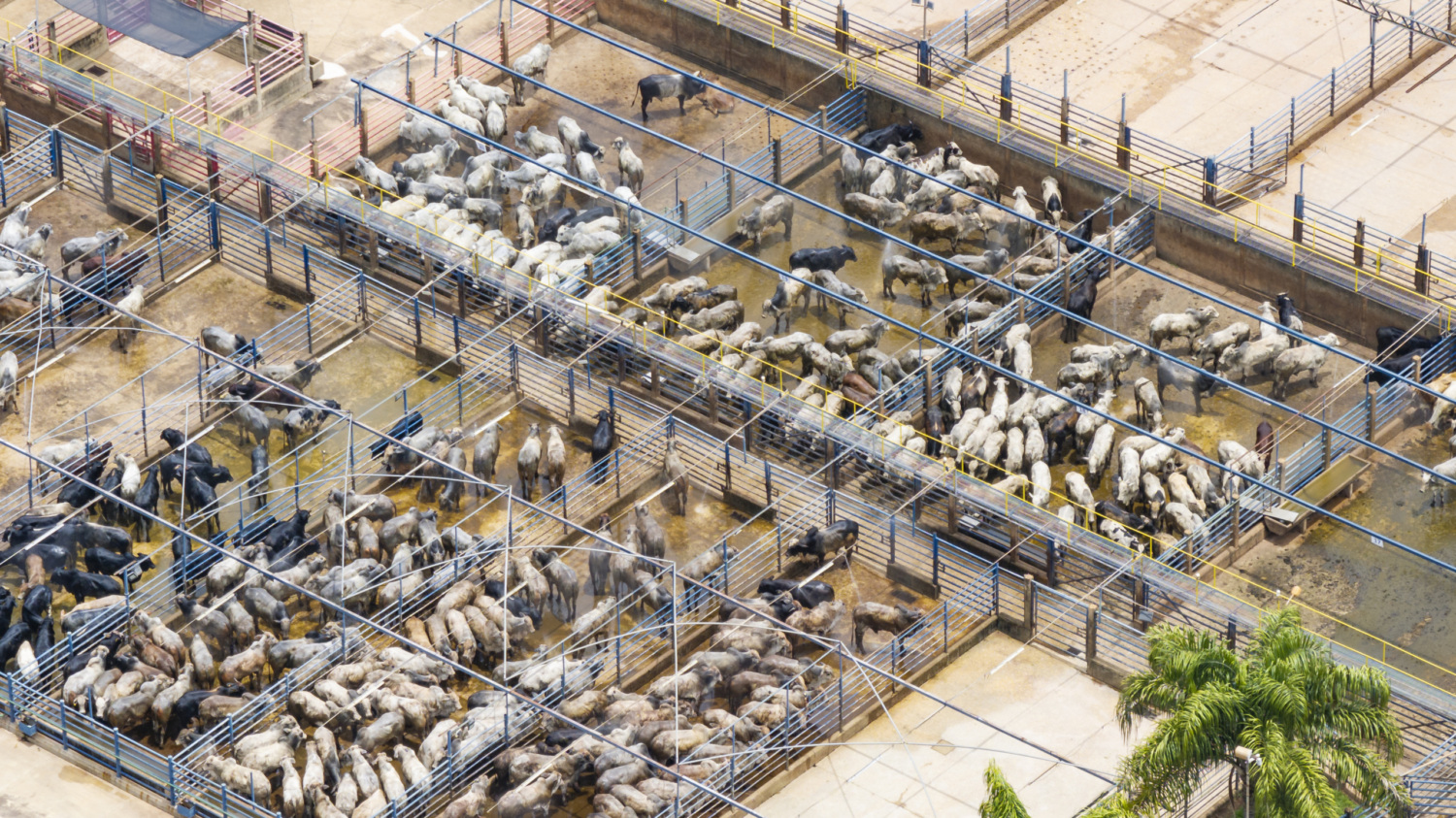
Trump’s Tariff on Brazilian Beef: An Unexpected Climate Win?
By Sammy Herdman
Trump’s trade war is rearing its head at the American beef market; in early July, the President announced the introduction of a 50% tariff on Brazilian imports, effective August 1, 2025. If levied, the new tariff would bring the total tariff rate on beef imported from Brazil to 76% for the rest of the year. Although President Trump is wholly unconcerned about climate change, his new Brazilian tariffs, if enacted, may have a significant impact on US methane emissions.
Methane is a powerful greenhouse gas 80 times more potent than carbon dioxide over 20 years. According to the United Nations Environment Programme, reducing methane is the most cost-effective method to keep the climate within a 1.5°C future scenario, thereby avoiding the worst impacts of climate change. Cattle and other livestock generate 25% of US methane emissions simply by digesting, and another 9% comes from the management of livestock manure. As a result, reducing meat – especially beef — consumption in the US is a promising way to meet the 30% methane reduction goal outlined in the Global Methane Pledge, which the US signed onto with almost 160 other countries. Reducing the consumption of Brazilian beef would also benefit critical Brazilian ecosystems; the production of beef and soy (used for animal feed) are key drivers of deforestation and land conversion in Amazon Rainforest, the Cerrado, and the Pantanal.
American Hamburgers, Brazilian Beef
Traders imported a record amount of beef from Brazil in the first 5 months of 2025: 175,063 metric tons, twice as much as the same period in 2024. Scarce supply in the US generated the dramatic increase of Brazilian imports; imports of beef from Mexico have been restricted due to the spread of a cattle parasite, and a years-long drought, partially caused by climate change has degraded US pasturelands so significantly that the domestic cattle supply is at its lowest in over 70 years. Consequently, the cost of domestic beef increased in the US, further entrenching reliance on Brazilian beef imports to satisfy demand.
If enacted, the potential 76% tariff on beef imported from Brazil is likely to increase beef prices in the US. Either American consumers will absorb some of the cost of the increased tariff or reduced Brazilian beef imports will cause a drop in supply or both. Higher beef prices may have a variety of consequences, but which will be greatest or longest-lasting is unpredictable.
Methane expander – could tariffs increase domestic beef production?
The tariffs on Brazilian beef could encourage domestic beef production, thus increasing US methane emissions. Although scaling up an industry does not happen overnight, American cattle producers benefitting from decreased competition could decide to increase production. Right now, production of beef in Brazil is less than half of the cost of production in US. However, a 76% tariff would give American producers an advantage, and although consumers would probably have to deal with higher beef prices for years, eventually US supply could increase to an extent that prices come down. However, there are many factors that could prevent US cattle production from ever scaling enough to drive down prices, such as droughts continuing to degrade pastures, heat waves killing cattle, or labor shortages in the meatpacking industry due to aggressive immigration policies. Most notably, corporations and ranchers may be hesitant to scale up production without any guarantee that Trump’s tariffs will stay in place beyond months or years. Despite these obstacles, there is still a chance that a while down the road, Trump’s tariffs on beef increase domestic production, thereby increasing US methane emissions.
Methane reducer — could tariffs decrease domestic beef consumption?
Alternatively, rising beef prices in the US could decrease beef consumption, ultimately reducing methane emissions. Already, American beef consumption is trending downwards. It’s likely that many American consumers may replace beef with more affordable meat, such as chicken. Chicken is already America’s favorite meat, but it comes with its own environmental issues and contributes to America’s meat overconsumption problem (the average American eats 1.5 times the daily meat requirement). Others may transition to plant-based proteins, such as legumes, pulses, or alternative products. Perhaps due to a growing awareness of the health and climate benefits of eating plant-based, almost 75% of American consumers aged 18-59 are open to eating more plant-based foods, and 33% of consumers are actively trying to reduce their meat intake. Yet, the comparatively high price of some plant-based proteins discourages many American consumers. If the tariffs changed that calculation the price of beef could surpass that of plant-based proteins, transitioning some beef meals to plant-based ones, thereby reducing deforestation and methane emissions from cattle.
If tariffs on beef influence American consumers to try out plant-based diets, they may form habits that last, even if beef prices become affordable again. This outcome would be highly beneficial to our climate and health. One study found that overall greenhouse gas emissions from the US would decrease by 82 million metric tons per year if all Americans substituted just one quarter of their meat consumption for plant-proteins. Much of those savings would come from methane, which would drop alongside meat consumption. And because plant-based meals can lower body-mass indexes, blood pressure, and cholesterol, Americans would be healthier, too.
If implemented, Trump’s tariff on Brazilian beef will have many consequences; but an unintended result may be a win for the environment, from a drop in deforestation and methane emissions, inching the US closer to a future with a stable climate.


